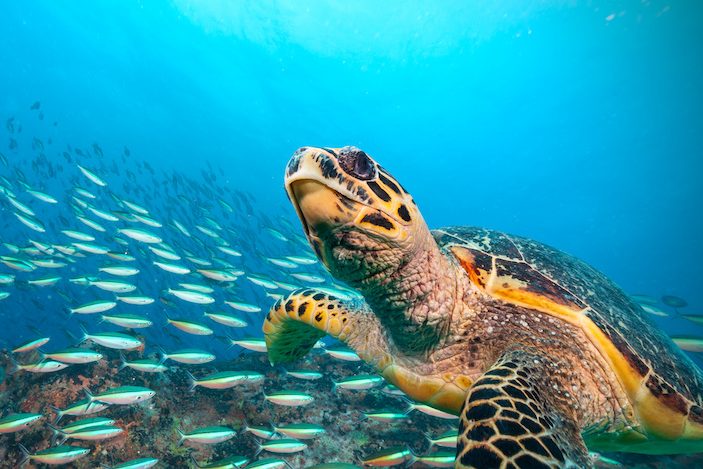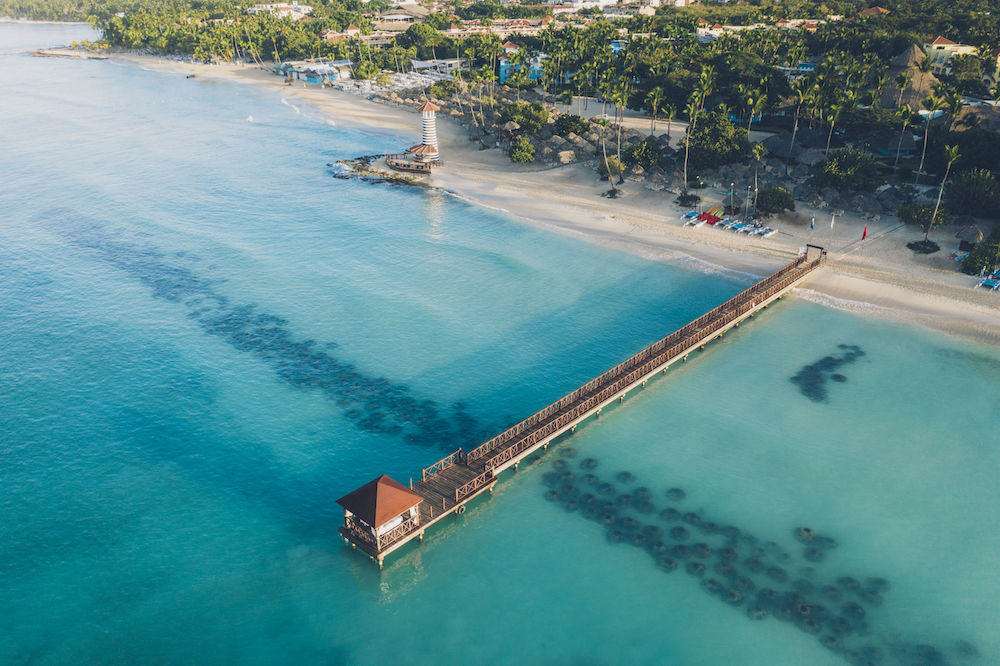Iberostar Partners with Expedia Group and UNESCO to Protect and Restore the Mesoamerican Reef
Hotels are expected to take care of their guests, but with increased awareness around global environmental issues, forward-thinking travelers are now looking to hotels to take better care of the ecosystems they inhabit, too.
As the global pandemic provided an unexpected two-year lull in travel, the industry was given a chance to seriously rethink some of its sustainability practices, and Iberostar, the Spain-based hotel group with more than 100 hotels in 19 countries, emerged as a leader, partnering with Expedia Group and UNESCO on a plan to protect and restore our ocean reefs and the colorful, diverse creatures that inhabit them.
First, the hotel group turned to science to learn more about the impacts of climate change, its crucial role in determining the future of the industry, and how to work towards a solution. With more than 80% of its hotels along ocean-front properties, the business case was obvious for working to mitigate impacts from climate change, so they started asking the questions: How can we preserve the beautiful oceans that our guests come to see every year? How do we ensure that future generations can enjoy our oceans as much as our current guests do? How can we build a model of responsible tourism?

From there, Iberostar’s work on coastal health took flight. It started with an idea, to utilize its locations globally to help discover, protect and restore coral reefs, mangroves and seagrasses. First, Iberostar partnered with an organization in the Dominican Republic, FUNDEMAR, to co-manage a coral reef nursery to help outplant corals. Next, they set out to build a lab at one of its hotels in the Caribbean to study the impacts of climate change on corals and give their guests an opportunity to learn about these precious animals while they were on vacation. As the projects continued to grow, so did the aspiration of the organization.
Protecting coastal ecosystems is critical for tourism, but so is utilizing some of those ecosystems to help with your carbon footprint. In early 2020, Iberostar announced its 2030 agenda, highlighting specific goals to work towards, one of which is to be carbon neutral by 2030. Through their work on coastal health, hiring of scientists whose objectives are to figure out this goal, and familiarity with the coastal ecosystems of the Caribbean, Iberostar’s work with nature-based solutions was born.

Because of the scale of Iberostar’s carbon footprint, with more than 100 hotels across Europe, Africa, and the Americas, they had to begin thinking about other ways to offset. Mangroves are incredible plants that sequester carbon at an incredible rate, and not only offer an opportunity for carbon offsetting, but provide eco-tourism opportunities to get guests close to these beautiful, lush forests. By 2030, Iberostar plans to offset 75% of its carbon footprint through nature-based solutions.
But Iberostar can’t do this alone, it requires connecting and working with other organizations that can help it push its agenda forward. In early August 2021, Iberostar joined Expedia Group and UNESCO in the expansion of the UNESCO Sustainable Travel Pledge. With the goal of changing the nature and impact of global tourism, Iberostar is working in line with the pledge through its Protecting and Restoring the Mesoamerican Reef Project.

Ibeorstar aims to increase the resiliency of the Mesoamerican Reef to adapt to climate change risks through the establishment of comprehensive, science-based, ecosystem propagation and restoration programs. This will also provide Iberostar’s guests with an opportunity to enjoy and connect with a more naturally functioning ecosystem.
As part of the campaign partnership and to further support the development of responsible tourism, Iberostar Group and Expedia Group have both contributed $100,000 to the Protecting and Restoring the Mesoamerican Reef initiative.
As we continue looking towards the future, partnerships like this are critical to ensuring that our coastal ecosystems survive and thrive. Connecting people with the oceans and working together is how a path towards improvement starts. Expedia Group, UNESCO and Iberostar will work together to ensure that the Mesoamerican Reef can continue providing resources for tourism and communities
Discover more of Iberostar’s dedication to sustainability here.
More Articles With Features
According to Expedia’s 23rd annual Vacation Deprivation Report, global vacation deprivation levels are the highest they’ve been in 10 years.